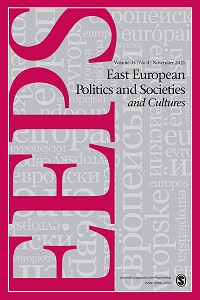Strange Bedfellows: A Hyper-pragmatic Alliance between European Liberals and an Illiberal Czech Technocrat
Strange Bedfellows: A Hyper-pragmatic Alliance between European Liberals and an Illiberal Czech Technocrat
Author(s): Vít Hloušek, Lubomír KopečekSubject(s): Political history, Government/Political systems, International relations/trade, Political behavior, Comparative politics, Transformation Period (1990 - 2010), Present Times (2010 - today), EU-Approach / EU-Accession / EU-Development, Asylum, Refugees, Migration as Policy-fields
Published by: SAGE Publications Ltd
Keywords: Andrej Babiš; the Alliance of Liberals and Democrats for Europe (ALDE); ideology; Europarties; Czech Republic;
Summary/Abstract: The article deals with the membership of the most important Czech political party, ANO (meaning “yes” in Czech), led by Andrej Babiš, in the Alliance of Liberals and Democrats for Europe (ALDE). Our goals are to reconstruct how Babiš’s party joined ALDE and to discuss the ideological differences between ANO and ALDE. The paper shows that ALDE’s offer of membership in 2014 was motivated by a pragmatic need to bolster its own position in the European Parliament; ANO, meanwhile, needed to anchor itself in European politics. Andrej Babiš’s technocratic and illiberal view was not apparent at the beginning, but more importantly, this did not matter to ALDE. ALDE’s Czech “point of contact,” ANO’s foreign policy expert and the leader of its party group in the European Parliament, Pavel Telička, made ANO’s membership credible. However, as a Euro-optimist, Telička was not compatible with ANO’s flexible ideological character in the long term and the party group split up. A comparison of the parties’ European Parliament election manifestos and positions on crucial controversial European issues clearly reveals a deep division between ALDE and ANO—and their fundamentally opposed ideological positions. We describe the findings as a new hyper-pragmatic trend in the creation of Europarties, which weakens their ideological cohesion.
Journal: East European Politics and Societies
- Issue Year: 36/2022
- Issue No: 01
- Page Range: 29-50
- Page Count: 22
- Language: English
- Content File-PDF

